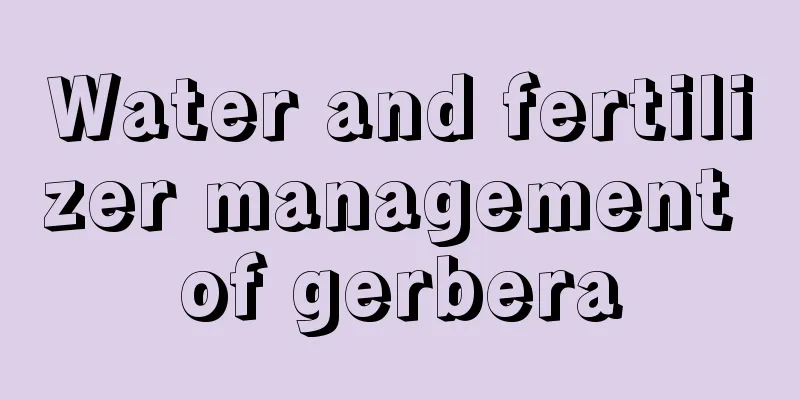How to water newly planted orchids? Is it okay to water them every day?

1. Watering method1. Potting method: Newly planted orchids must be watered thoroughly in time, which is what we often call rooting water. When watering, you can prepare a bucket of water, then put the flower pot in it. When water seeps out from the surface of the flower pot, it means it has been watered thoroughly. Then let the water in the pot flow out. This method will make the watering more thorough and even. 2. Watering method: When watering, you can put a leather hose on the faucet, and then water it with small amounts of water. This will create a certain amount of pressure, which is conducive to thorough watering. You can stop when the potting soil and roots are completely moistened. 2. Can I water it every day?Newly planted orchids must not be watered every day. After watering them once to help them take root, just wait until the soil is dry before watering them again. No watering is needed during this period. If you water the plants every day, the soil in the pot will be too wet, and the newly planted roots will be weak, causing them to rot and die due to lack of oxygen. In addition, be careful not to apply any fertilizer, otherwise it will burn the roots and affect growth. |
<<: How often should you fertilize orchids that have just been potted?
>>: Can Clivia be placed on the balcony? Can it be exposed to the sun?
Recommend
How to grow bougainvillea during flowering period
1. Light This plant is extremely light-loving by ...
Components of a tree
1. Root The roots are the nutritional organs of t...
The legend of Mandala
legend In Western legends, mandala has always bee...
How many pounds of Scutellaria baicalensis per mu? Yield and benefits per mu
Scutellaria baicalensis yield per mu Scutellaria ...
How to make delicious tomatoes and how to peel tomatoes
1. How to cook delicious tomatoes Italian meatbal...
How to grow potted aloe vera? Cultivation methods and precautions
Aloe vera pot cultivation method 1. Temperature: ...
How to change hyacinth hydroponics to soil cultivation
1. Situations where soil culture can be switched ...
Where do daffodil seeds come from?
Where do daffodil seeds come from? When the seeds...
When is the best time to harvest cabbage?
Cabbage harvest time Cabbage is generally harvest...
Can a peace tree survive after being cut down?
1. Can I still live? A tree can still survive aft...
What fertilizer should be used to make roses bloom more and bigger with thicker petals (homemade rose fertilizer)
How to fertilize roses so that they can bloom wit...
How to grow the Dream Angel succulent
The succulent plant Dream Angel is very beautiful...
How to water peonies, doing these two things well is the key!
The basic characteristics of peony: It likes sunl...
How to grow freesia in autumn
1. Breeding conditions 1. Soil: It prefers a nutr...
What is the reason for the withering of the branches of the fortune tree?
1. Lack of light Reason: Long-term lack of light ...









